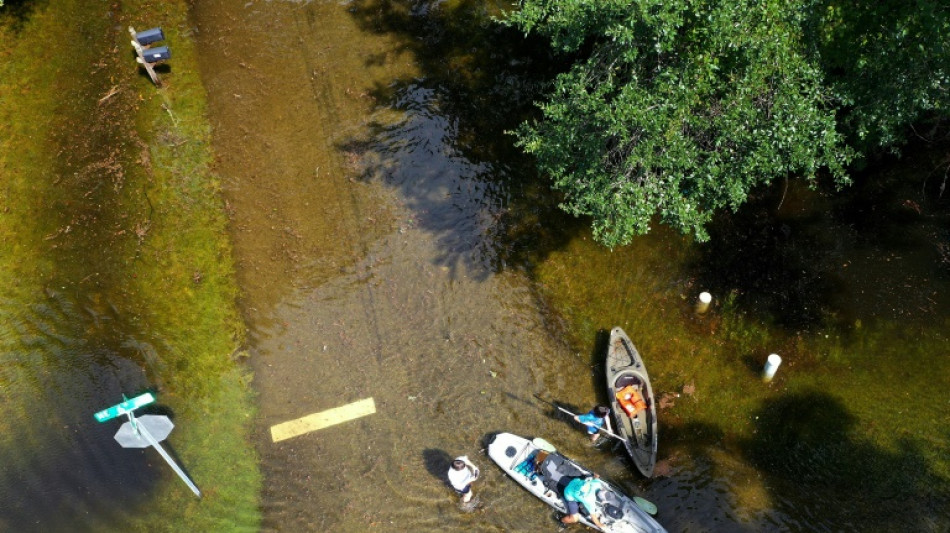
-
 US Justice Dept releasing new batch of Epstein files
US Justice Dept releasing new batch of Epstein files
-
South Africa and Israel expel envoys in deepening feud

-
 French eyewear maker in spotlight after presidential showing
French eyewear maker in spotlight after presidential showing
-
Olympic dream 'not over', Vonn says after crash

-
 Brazil's Lula discharged after cataract surgery
Brazil's Lula discharged after cataract surgery
-
US Senate races to limit shutdown fallout as Trump-backed deal stalls

-
 'He probably would've survived': Iran targeting hospitals in crackdown
'He probably would've survived': Iran targeting hospitals in crackdown
-
Djokovic stuns Sinner to set up Australian Open final with Alcaraz

-
 Mateta omitted from Palace squad to face Forest
Mateta omitted from Palace squad to face Forest
-
Djokovic 'pushed to the limit' in stunning late-night Sinner upset

-
 Tunisia's famed blue-and-white village threatened after record rains
Tunisia's famed blue-and-white village threatened after record rains
-
Top EU official voices 'shock' at Minneapolis violence

-
 Kremlin says agreed to halt strikes on Kyiv until Sunday
Kremlin says agreed to halt strikes on Kyiv until Sunday
-
Carrick calls for calm after flying start to Man Utd reign

-
 Djokovic to meet Alcaraz in Melbourne final after five-set marathon
Djokovic to meet Alcaraz in Melbourne final after five-set marathon
-
Italian officials to testify in trial over deadly migrant shipwreck

-
 Iran says defence capabilities 'never' up for negotiation
Iran says defence capabilities 'never' up for negotiation
-
UN appeals for more support for flood-hit Mozambicans

-
 Lijnders urges Man City to pile pressure on Arsenal in title race
Lijnders urges Man City to pile pressure on Arsenal in title race
-
Fulham sign Man City winger Oscar Bobb

-
 Strasbourg's Argentine striker Panichelli sets sights on PSG, World Cup
Strasbourg's Argentine striker Panichelli sets sights on PSG, World Cup
-
Jesus 'made love': Colombian president irks Christians with steamy claim

-
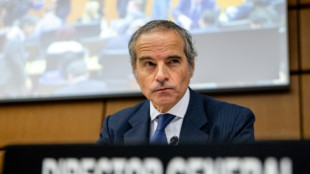 IAEA board meets over Ukraine nuclear safety concerns
IAEA board meets over Ukraine nuclear safety concerns
-
Eurozone growth beats 2025 forecasts despite Trump woes

-
 Dutch PM-elect Jetten says not yet time to talk to Putin
Dutch PM-elect Jetten says not yet time to talk to Putin
-
Social media fuels surge in UK men seeking testosterone jabs

-
 Forest face Fenerbahce, Celtic draw Stuttgart in Europa League play-offs
Forest face Fenerbahce, Celtic draw Stuttgart in Europa League play-offs
-
US speed queen Vonn crashes at Crans-Montana, one week before Olympics

-
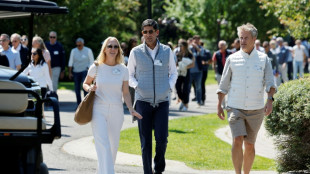 Trump nominates former US Fed official as next central bank chief
Trump nominates former US Fed official as next central bank chief
-
New Dutch government pledges ongoing Ukraine support
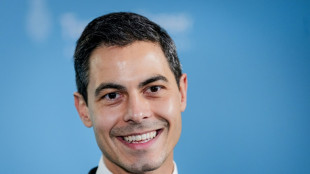
-
 Newcastle still coping with fallout from Isak exit, says Howe
Newcastle still coping with fallout from Isak exit, says Howe
-
Chad, France eye economic cooperation as they reset strained ties
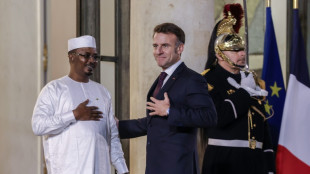
-
 Real Madrid to play Benfica, PSG face Monaco in Champions League play-offs
Real Madrid to play Benfica, PSG face Monaco in Champions League play-offs
-
Everton winger Grealish set to miss rest of season in World Cup blow

-
 Trump brands Minneapolis nurse killed by federal agents an 'agitator'
Trump brands Minneapolis nurse killed by federal agents an 'agitator'
-
Arteta focuses on the positives despite Arsenal stumble

-
 Fijian Drua sign France international back Vakatawa
Fijian Drua sign France international back Vakatawa
-
Kevin Warsh, a former Fed 'hawk' now in tune with Trump

-
 Zverev rails at Alcaraz timeout in 'one of the best battles ever'
Zverev rails at Alcaraz timeout in 'one of the best battles ever'
-
Turkey leads Iran diplomatic push as Trump softens strike threat

-
 Zelensky backs energy ceasefire, Russia bombs Ukraine despite Trump intervention
Zelensky backs energy ceasefire, Russia bombs Ukraine despite Trump intervention
-
'Superman' Li Ka-shing, Hong Kong billionaire behind Panama ports deal

-
 Skiing great Lindsey Vonn crashes at Crans-Montana, one week before Olympics
Skiing great Lindsey Vonn crashes at Crans-Montana, one week before Olympics
-
Slot warns Liverpool 'can't afford mistakes' in top-four scrap

-
 Paris show by late Martin Parr views his photos through political lens
Paris show by late Martin Parr views his photos through political lens
-
Artist chains up thrashing robot dog to expose AI fears

-
 Alcaraz outlasts Zverev in epic to reach maiden Australian Open final
Alcaraz outlasts Zverev in epic to reach maiden Australian Open final
-
French PM forces final budget through parliament

-
 French-Nigerian artists team up to craft future hits
French-Nigerian artists team up to craft future hits
-
Dutch watchdog launches Roblox probe over 'risks to children'

| RIO | -3.02% | 92.34 | $ | |
| NGG | -0.47% | 84.65 | $ | |
| SCS | 0.12% | 16.14 | $ | |
| CMSC | -0.26% | 23.634 | $ | |
| BTI | 0.03% | 60.23 | $ | |
| BCC | -1.66% | 78.86 | $ | |
| AZN | 0.68% | 93.22 | $ | |
| GSK | 1.42% | 51.385 | $ | |
| JRI | 0.27% | 12.99 | $ | |
| BP | 0.08% | 38.072 | $ | |
| RYCEF | -2.69% | 16 | $ | |
| BCE | 0.08% | 25.505 | $ | |
| RBGPF | 1.65% | 83.78 | $ | |
| CMSD | -0.03% | 24.053 | $ | |
| VOD | -0.2% | 14.68 | $ | |
| RELX | -1.33% | 35.69 | $ |

How climate change boosts hurricanes
Scientists are sounding the alarm on human-caused climate change's impact on hurricanes such as Idalia, which rapidly intensified over a warm Gulf of Mexico before making landfall in Florida on Wednesday.
Here's what you need to know.
- Record-warm oceans counter El Nino -
Back in May, the US National Oceanic and Atmospheric Administration (NOAA) predicted a "near normal" Atlantic hurricane season, which runs from June 1 to November 30.
That was in large part because of the El Nino global weather pattern, which causes a higher than average "vertical wind shear" in the Atlantic, which in turn suppresses hurricane activity.
"If you have big changes in the wind with height, that tends to import dry, lower-energy air into the core of a tropical cyclone and prevent it from strengthening," Allison Wing, an atmospheric scientist at Florida State University, told AFP.
But come August, NOAA increased its forecast prediction for the season to "above normal," based on ocean and atmospheric conditions "such as record-warm Atlantic sea surface temperatures" that "are likely to counterbalance the usually limiting atmospheric conditions associated with the ongoing El Nino event."
"It's been a sort of tricky year in terms of thinking about the whole seasonal forecast because we have these two opposing factors," said Wing.
- What is known about climate change -
One-eye catching example: on July 24 a buoy off the southern tip of Florida recorded an alarming peak temperature of 101.1 degrees Fahrenheit (38.4 Celsius), readings more commonly associated with hot tubs, and a possible new world record.
"Warm waters, both at the surface of the ocean and beneath, provide the fuel that intensifies tropical storms and hurricanes," said Michael Mann, a climatologist at University of Pennsylvania. "That allows them to both intensify faster and attain higher maximum intensities."
You still need the right conditions to lead to hurricane formation -- but when they come along, storms will take advantage of warming oceans to generate fiercer winds and cause bigger storm surges.
"You can think of climate change as sort of like loading the dice," added Wing. "There's still a variety of different possible outcomes for any individual storm, but you have a greater chance of having those high-intensity storms."
Apart from affecting the maximum intensity of hurricanes, climate change can also increase the amount of rain they are able to dump, Andrew Kruczkiewicz, an atmospheric scientist and researcher at the International Research Institute for Climate and Society at Columbia University, told AFP.
"The warmer the atmosphere is, the greater the capacity for water," he said. "This can mean increased intense precipitation events."
Kruczkiewicz added he was personally worried people who had moved inland to escape Idalia could find themselves caught nonetheless in extreme weather.
Last year, climate change boosted Hurricane Ian's rainfall by at least 10 percent, according to recent research.
- Seasons getting longer -
There's increasing evidence that the storm season itself is getting longer, as the window during which ocean surface temperatures support tropical storm formation begins sooner and ends later, said Mann -- a relationship that appears to hold true in both the Atlantic hurricane basin and the Bay of Bengal.
While there is ample research that climate change is making hurricanes more dangerous, whether it is also making them more frequent is much less certain and more study is required.
J.Bergmann--BTB




